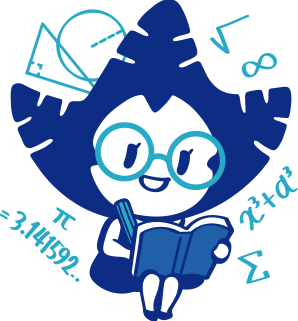
Department of Mathematics
“The true essence of mathematics resides in its intrinsic freedom”.
- +82-2-710-9425
- +82-2-2077-7323
- Continuing Education Building 416
- math@sookmyung.ac.kr
The Department of Mathematics and Statistics is dedicated to nurturing individuals who possess both specialized knowledge and well-rounded character, capable of leading in the ever-changing scientific and social landscape. Our goal is to cultivate mathematicians who can make significant contributions to both scientific advancements and society as a whole. Through a rigorous curriculum, we guide students in understanding the essence of mathematics and establishing a solid foundation in critical thinking that applies to all academic disciplines, including the natural sciences. Our aim is to educate and develop talented individuals who possess wisdom and excellence, equipped to meet the needs of society and contribute to a better world.
Education Purposes
The Department of Mathematics is committed to fostering experts who will be at the forefront of advancements in various fields of society, as well as the field of mathematics itself. Through in-depth study of mathematical theory and the cultivation of logical thinking skills, our educational purpose is to nurture individuals who possess the creativity and expertise to lead and make significant contributions. Our aim is to empower students to apply mathematical principles innovatively and drive the development of their respective fields.
Education Goals
- Foster creative talents with a holistic approach, equipped with both professional knowledge and well-rounded personalities, to drive technological advancements for the betterment of humanity.
- Gain a profound understanding of the foundational concepts and principles of mathematics, the language that describes nature and establish a framework that contributes to scientific development.
- Explore the interconnectedness between individuals and society through the study of mathematics, fostering a collaborative and cooperative mindset.
- Contribute to societal development by engaging in abstract concepts through logical thinking and applying ethical practices in their application.
- Cultivate leadership skills to become exemplary educators and leaders in the field of mathematics.

